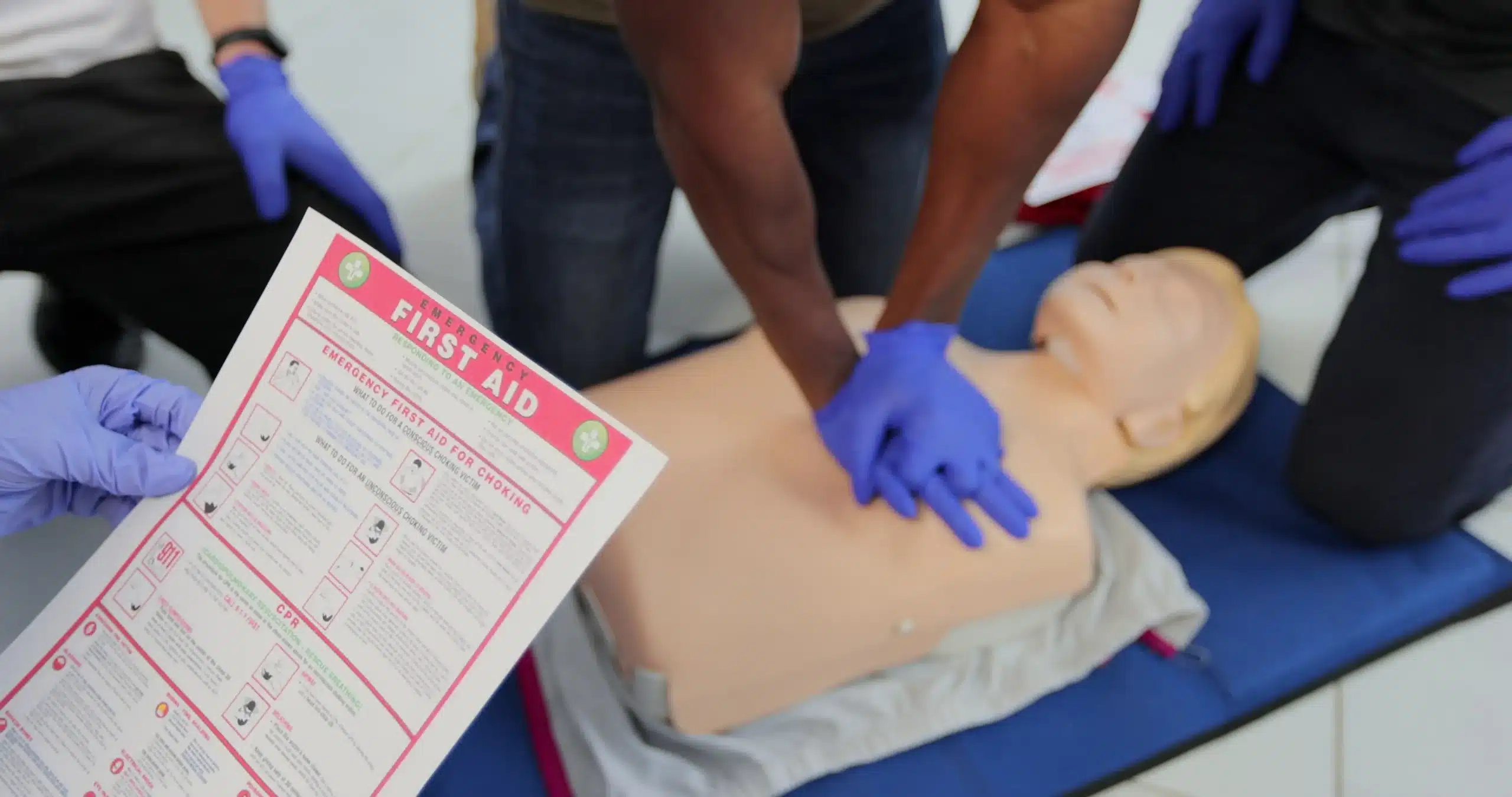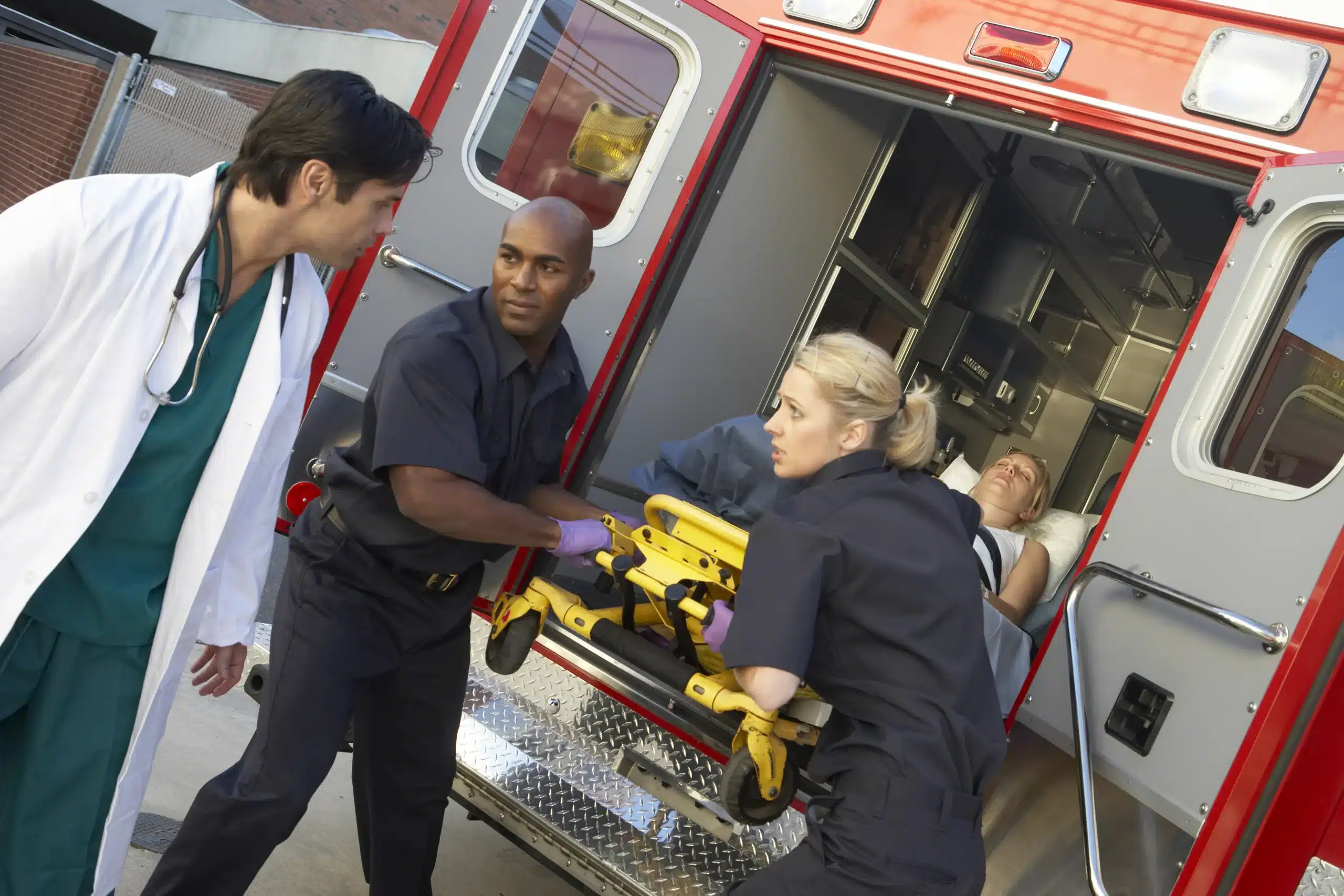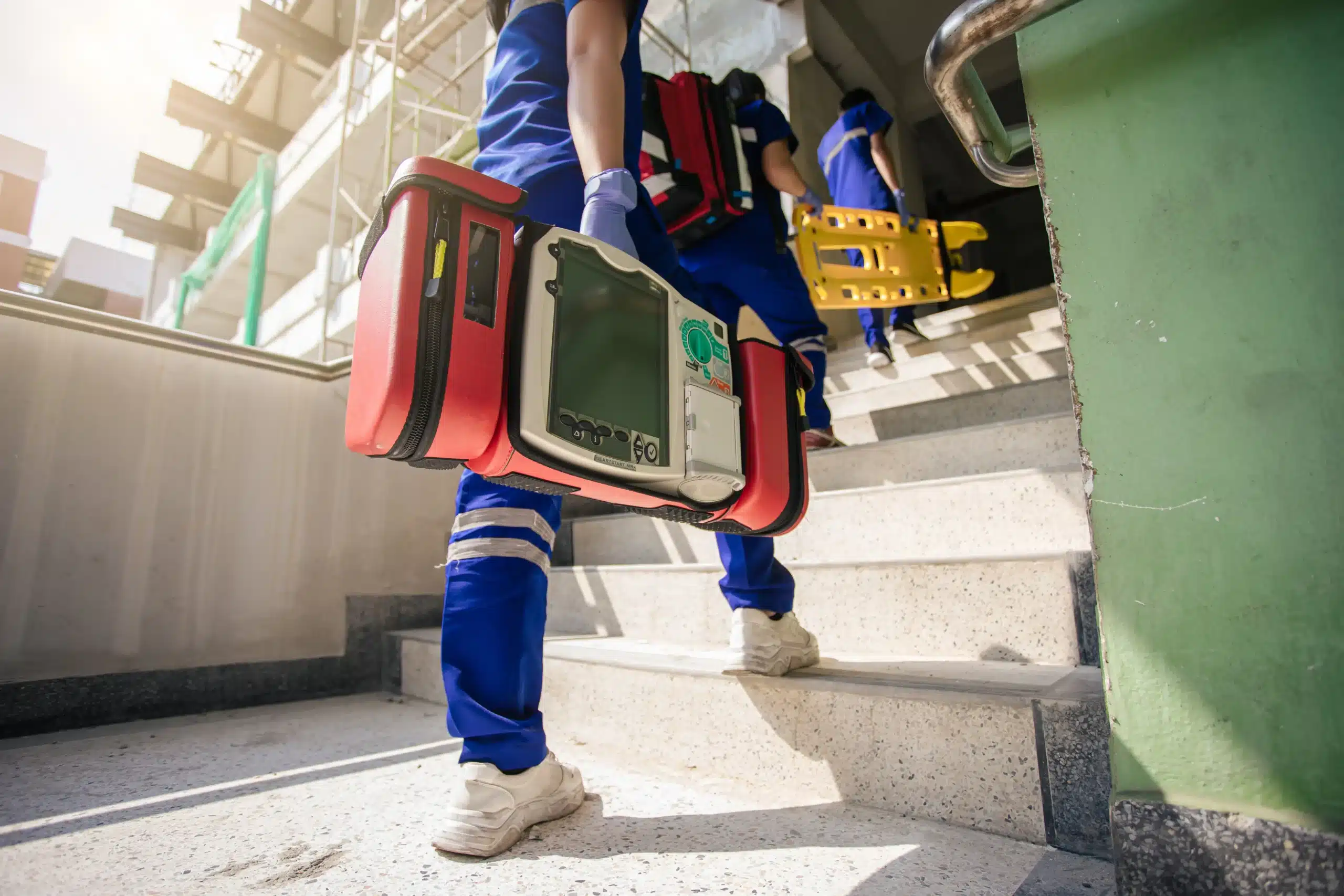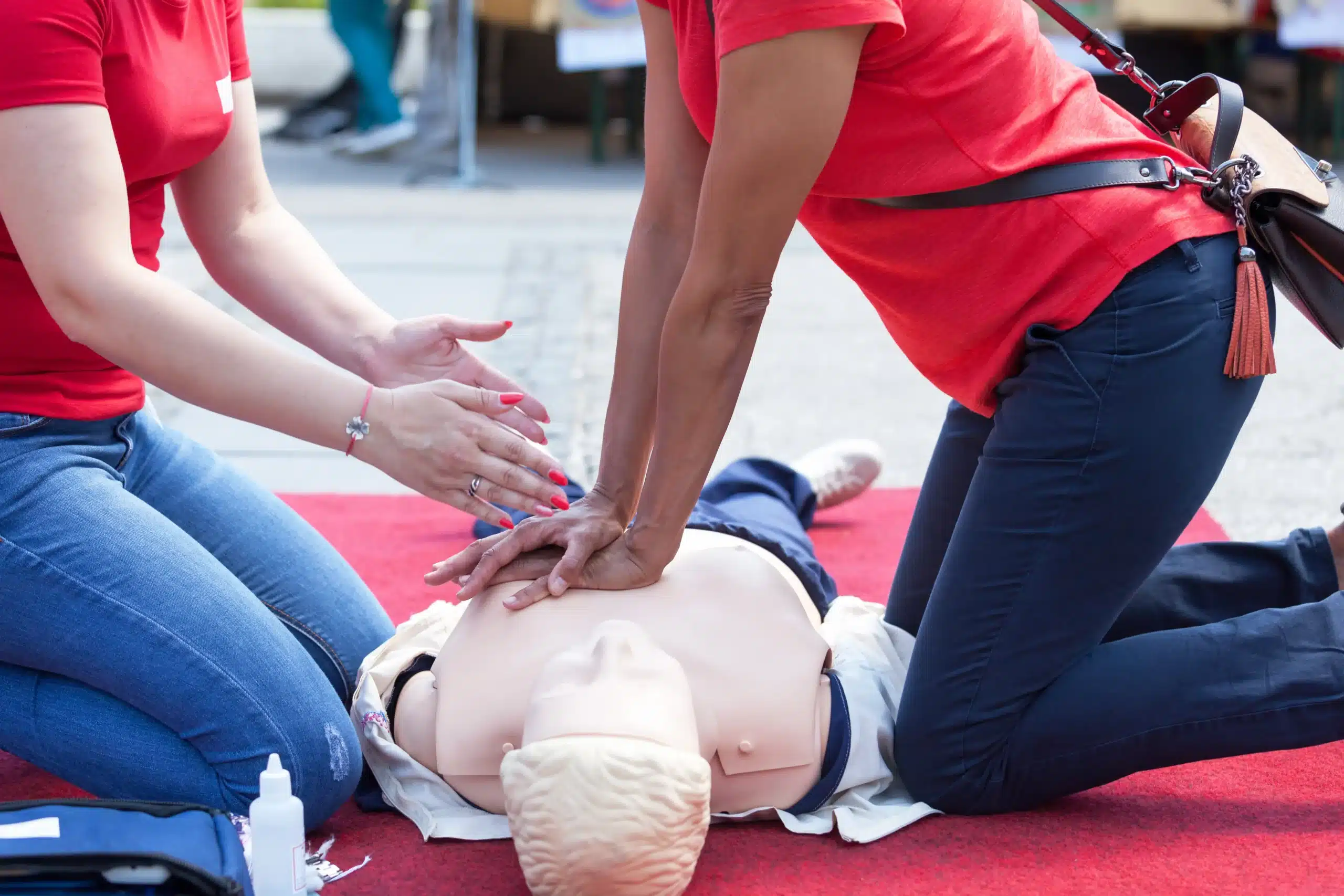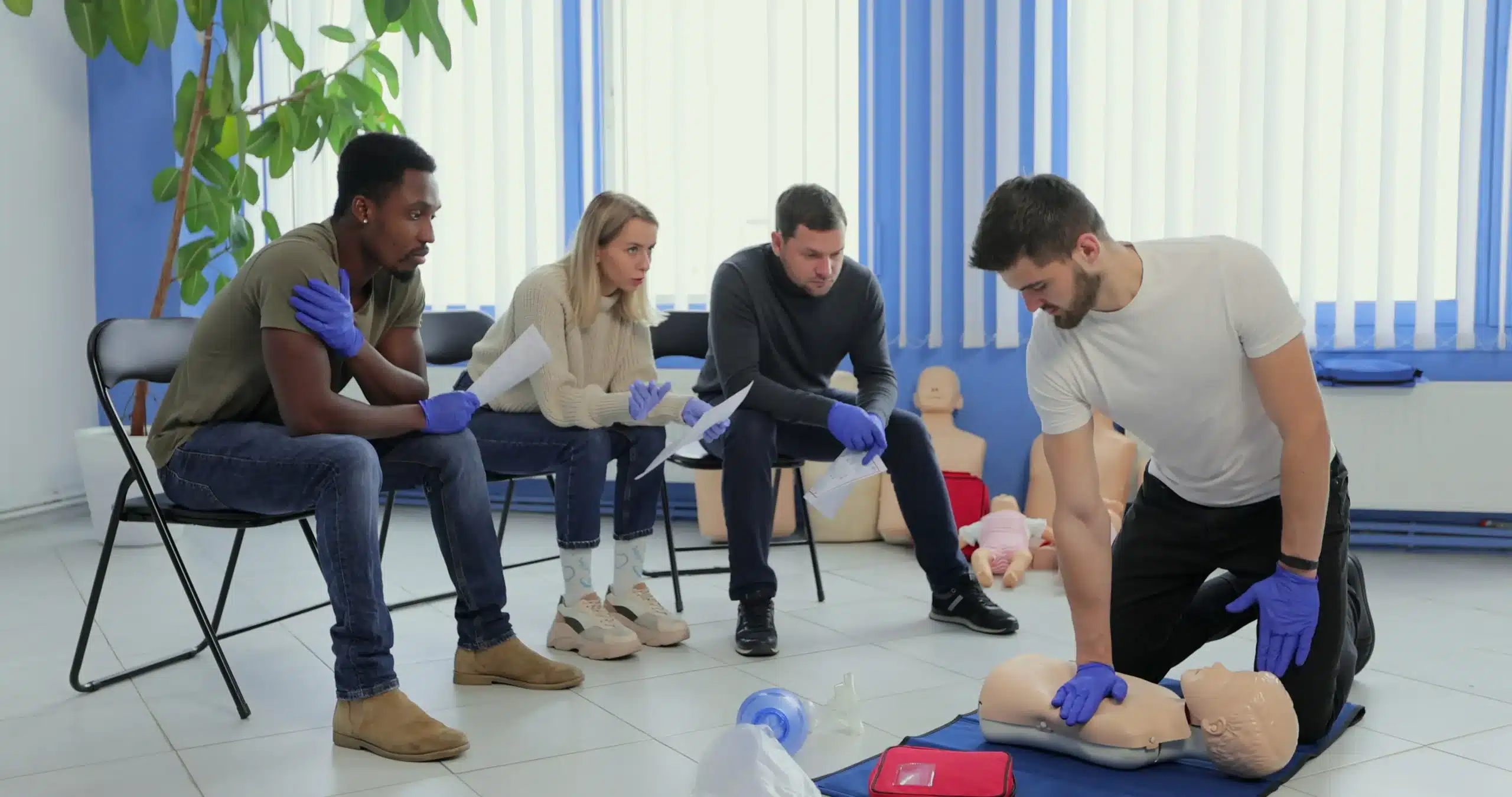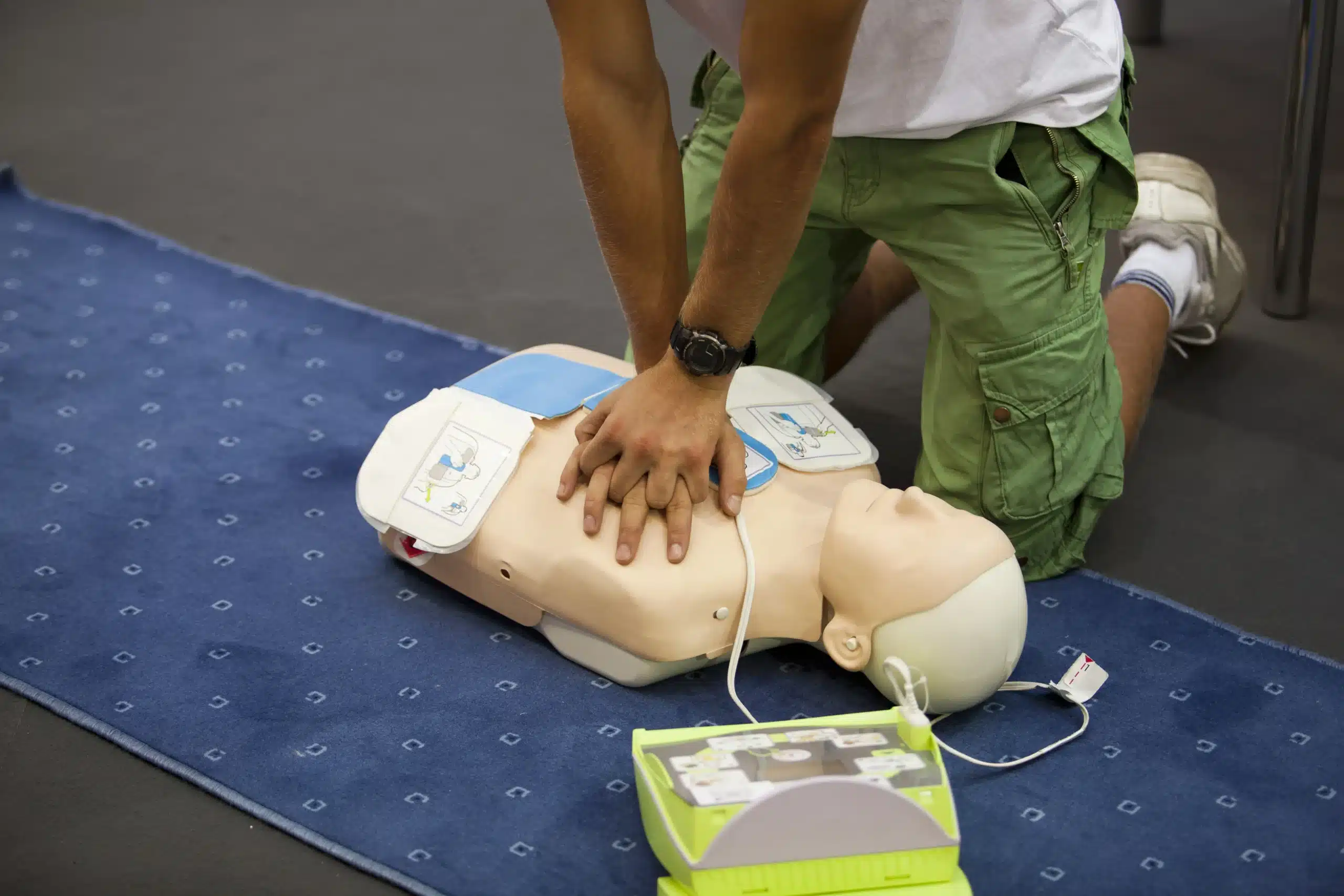In a crisis, seconds count. Knowing CPR and first aid can be the difference between life and death. If you’re in Benicia and looking for American Heart Association (AHA) training, this guide is for you. We’ll explore the range of AHA certifications available, from Basic Life Support (BLS) to Advanced Cardiovascular Life Support (ACLS) and Pediatric Advanced Life Support (PALS). We’ll also help you find training centers in and around Benicia, including Martinez CPR Classes, known for their low-price guarantee and group discounts. Plus, we’ll address common misconceptions about CPR and first aid, ensuring you’re prepared with accurate information and practical skills.
Key Takeaways
- AHA certification offers essential life-saving skills: A range of courses, from basic CPR to advanced life support, are readily available in Benicia and nearby areas, catering to both healthcare professionals and the community. Consider Martinez CPR Classes for convenient and affordable options.
- Choose a training center that fits your needs and budget: Look for convenient locations, comprehensive course offerings, potential group discounts, and price guarantees when selecting your AHA Training Center. Martinez CPR Classes offers competitive pricing and serves Benicia and surrounding areas.
- Active participation and hands-on practice are essential: Prepare for your course by reviewing materials, engaging actively during training, and prioritizing hands-on practice to build confidence and proficiency in essential life-saving techniques.
What is the American Heart Association’s Role in Benicia?
The American Heart Association (AHA) plays a vital role in supporting cardiovascular health and emergency response training in Benicia. Since the 1960s, the AHA has been a leader in CPR education, initially teaching these essential techniques to healthcare providers. This commitment continues, with the AHA offering a range of certification courses designed to equip people with life-saving skills. Local training centers in Benicia, like the Benicia CPR Training Center, offer AHA-certified CPR and advanced life support courses for both healthcare professionals and the public. These courses often include convenient options like online and in-person classes, making learning these vital emergency response skills accessible. Organizations such as Safety Training Seminars also provide various AHA certifications, including Basic Life Support (BLS), Advanced Cardiovascular Life Support (ACLS), and Pediatric Advanced Life Support (PALS), ensuring participants are prepared to handle emergency situations effectively. The AHA’s dedication to training and education in Benicia strengthens individual preparedness and cultivates a community-wide culture of safety and responsiveness, ultimately contributing to improved health outcomes for residents. For those closer to Martinez, Martinez CPR Classes offers a low price guarantee and is a woman-owned business.
AHA-Certified Courses in Benicia
Benicia residents have access to a variety of American Heart Association (AHA) courses designed to equip them with life-saving skills. Whether you’re a healthcare professional, a childcare provider, or simply want to be prepared for emergencies, there’s a course that fits your needs. Let’s explore some of the key AHA certifications available in or near Benicia:
Basic Life Support (BLS)
The BLS course covers core life-saving skills for healthcare providers and other professionals. It emphasizes high-quality chest compressions, airway management, and rescue breathing techniques. BLS certification is often a prerequisite for other advanced certifications, providing foundational knowledge and skills to respond effectively in respiratory and cardiac emergencies.
Advanced Cardiovascular Life Support (ACLS)
ACLS training builds upon the fundamentals of BLS, focusing on advanced interventions for adult cardiac arrest. Designed for healthcare professionals who lead or participate in resuscitation teams, this course covers effective team dynamics, high-performance CPR, and post-cardiac arrest care. ACLS certification ensures healthcare providers have the expertise to manage complex cardiovascular emergencies.
Pediatric Advanced Life Support (PALS)
The PALS course equips healthcare providers with the specialized knowledge and skills to manage pediatric emergencies. Covering a range of topics from respiratory distress and shock to cardiac arrest and post-resuscitation care, PALS emphasizes a systematic approach to assessment, intervention, and stabilization in young patients.
Heartsaver CPR and First Aid
Heartsaver courses teach essential life-saving skills, including CPR, AED use, and basic first aid techniques for adults, children, and infants. This training empowers individuals to respond confidently in emergencies and provide critical care until professional help arrives. It’s a valuable certification for teachers, coaches, parents, and anyone interested in basic life support skills. While the linked resource focuses on becoming an instructor, it highlights the importance of these essential skills.
Neonatal Resuscitation Program (NRP)
The NRP course focuses on the specific needs of newborns requiring resuscitation. Essential training for healthcare professionals involved in neonatal care, including nurses, doctors, and respiratory therapists, NRP covers the latest evidence-based practices for neonatal resuscitation. This training ensures that healthcare providers can effectively manage these critical situations.
Find AHA Training Centers in Benicia
Finding the right American Heart Association (AHA) training center is crucial for high-quality instruction and proper certification. Benicia residents have several options for CPR and first aid training nearby.
Martinez CPR Classes: Serving Benicia and Surrounding Areas
Martinez CPR Classes offers a convenient option for AHA certification in and around Benicia. They provide various courses, including BLS for Healthcare Providers, at competitive prices. Their commitment to low prices and convenient scheduling makes them a practical choice for busy professionals and community members. They also offer group discounts, a great option for workplaces or community organizations. Visit their website for more information.
Benicia CPR Training Center
The CPR Training Center of Concord offers various AHA courses, including Advanced Cardiovascular Life Support (ACLS), designed for healthcare providers involved in resuscitation. While located in Concord, their proximity to Benicia makes them accessible for specialized training. Learn more about their ACLS courses.
Bay Area CPR
Safety Training Seminars, also known as Bay Area CPR, provides various CPR and first aid courses in Benicia that meet AHA standards. They offer classes seven days a week, making it easier to fit training into your schedule. Whether you need basic CPR and first aid or advanced certifications like BLS, ACLS, and PALS, they offer comprehensive options. Visit their website for details on Benicia courses.
Costs & Value of AHA Courses in Benicia
When it comes to learning life-saving skills, understanding the costs associated with American Heart Association (AHA) courses is important. Let’s break down the pricing structure for AHA courses in Benicia, including individual course costs, group discounts, and special offers.
Individual Course Pricing
Standard CPR certification courses, like the AHA BLS for Healthcare Providers, are competitively priced in Benicia. This makes training accessible for individuals. Various providers offer similar pricing, so compare what each training center includes, such as course materials, certification cards, and any additional resources. Martinez CPR Classes offers a low price guarantee, giving you confidence in your investment.
Group Discounts and Special Offers
If you’re training a group, like workplace staff or a community organization, ask about group discounts. Many training centers, including Martinez CPR Classes, offer reduced rates for group bookings. This can significantly reduce costs when certifying multiple people and is a great way to build camaraderie and ensure everyone has the same up-to-date training.
Low Price Guarantee
Look for training centers that offer a low price guarantee. This shows their commitment to affordable training. A low price guarantee often means they’ll match or beat competitor pricing, assuring you of the best value. This is especially helpful when budgeting for training, whether for yourself or a larger group.
AHA Course Details & Certification
Knowing the specifics of AHA course structure and certification is helpful when choosing the right course. Here’s a closer look at what to expect:
Course Duration and Components
AHA CPR and First Aid training often combine these life-saving skills into one program. These combined CPR and First Aid courses typically take about seven hours. This allows ample time for instruction, demonstrations, and hands-on practice to build your confidence in responding to emergencies.
Certification Validity and Renewal
Your AHA certification remains valid for two years. This timeframe helps ensure your skills and knowledge stay fresh, so you’re ready to act quickly when needed. Renewing your certification regularly maintains this preparedness.
Same-Day Certification Cards
A convenient aspect of AHA training is the immediate recognition of your new skills. You’ll receive your certification card on the same day you complete the course, allowing you to demonstrate your qualifications right away.
Online Renewal Options
Renewing your certification is simple, thanks to online options available for BLS and ACLS. This flexibility makes staying current easier, even with a busy schedule. Check with your training center for the latest renewal information.
Instructor Qualifications & Experience
When you choose an AHA training course, you’re choosing more than just a class—you’re choosing an instructor dedicated to empowering you with life-saving skills. Understanding their qualifications and experience can give you confidence in the quality of your training.
AHA Instructor Certification Requirements
Becoming an American Heart Association (AHA) Instructor isn’t a simple process. Candidates must already hold current provider certification in the course they want to teach, such as BLS, ACLS, or PALS. This ensures instructors have a strong foundation in the material. They also complete a structured training program covering teaching methodologies, AHA guidelines, and communication skills. This rigorous process prepares instructors to deliver high-quality training.
Healthcare and Teaching Backgrounds
Many AHA Instructors have backgrounds in healthcare or education. This experience gives them a deep understanding of patient care, adult learning principles, and clear communication. The AHA’s training program equips all aspiring instructors with the tools they need to share life-saving information effectively, regardless of prior experience. This focus on comprehensive training ensures that every AHA Instructor can create a positive and effective learning environment.
Ongoing Training and Professional Development
AHA Instructors continue learning after certification. They participate in ongoing training and professional development to stay current on the latest AHA guidelines and best practices. This includes teaching their first class under the guidance of an AHA Training Faculty member. This ongoing commitment ensures instructors maintain high standards and provide students with the most current, effective techniques. This dedication to continuous learning benefits both the instructors and their students.
Schedule Your AHA Course
Finding the right CPR class is easier than you think. We offer various schedules and learning formats to fit your needs.
In-Person Training
At Martinez CPR Classes, we emphasize hands-on learning. Our in-person training provides the practical experience and immediate feedback you need to master life-saving skills. You’ll work directly with our certified instructors, building confidence and proficiency in a supportive environment. This in-person training covers essential techniques and best practices for responding to emergencies.
Online and Blended Learning
We understand that life gets busy. That’s why we offer flexible online and blended learning options. Need to renew your BLS or ACLS certification? Our online courses let you learn at your own pace, fitting your studies around your schedule. Blended learning combines online coursework with the hands-on skills practice you’ll gain in person. This format is perfect for busy professionals balancing work, family, and continuing education.
Weekday and Weekend Availability
We offer AHA courses seven days a week, with various times to choose from. We know finding a time that works can be tricky, so we strive to offer flexible scheduling. Whether you prefer a weekday class or a weekend session, we have options to fit your availability. Serving Martinez, Port Chicago, and Benicia, CA, we make getting the training you need convenient.
Prepare for Your AHA Course
Getting ready for your AHA course can make a real difference in how well you absorb the information and build your confidence. Here’s how to prepare:
Pre-Course Materials and Study Resources
Before your class, Martinez CPR Classes will provide you with the necessary course materials. This often includes a student handbook and access to online resources. Familiarize yourself with the handbook before class. Even a quick review can give you a head start and help you get the most out of the instructor’s guidance. This preparation allows you to focus on hands-on practice and ask clarifying questions during the training. For some courses, like the BLS Instructor Course, you’ll need a current provider card, so make sure you’re certified before signing up.
What to Expect During Training
AHA courses blend theory and hands-on practice. Expect a dynamic learning environment with demonstrations, skills practice, and scenario-based learning. You’ll learn the latest science-backed techniques for CPR, first aid, and other life-saving interventions. For example, ACLS courses focus on advanced techniques for healthcare providers working in emergency settings. Regardless of the course, you’ll have opportunities to ask questions and receive personalized feedback from your instructor.
Tips for Successful Completion
Come prepared to actively participate. Ask questions, engage in discussions, and take advantage of the hands-on practice sessions. One common misconception is that CPR is always about mouth-to-mouth resuscitation. In reality, high-quality chest compressions are the most critical component. Understanding this and other common CPR myths will help you approach the training with confidence. Active participation and a willingness to learn will set you up for success in your AHA course and empower you to act quickly and effectively in a real emergency.
AHA Training’s Impact on Community Safety
AHA training courses, like those offered at Martinez CPR Classes, play a vital role in community safety, impacting everything from our local healthcare systems to individual workplaces. These courses empower individuals with the knowledge and skills to respond effectively in emergencies, creating a ripple effect of preparedness throughout our communities.
Enhance Local Healthcare Readiness
Hospitals and clinics rely on healthcare providers who are proficient in life-saving techniques. AHA courses such as Advanced Cardiovascular Life Support (ACLS) equip these professionals with the skills to manage cardiovascular emergencies, respiratory issues, and other critical situations. This training strengthens our local healthcare infrastructure, ensuring a higher standard of care and a more effective response to emergencies within our hospitals and in the wider community. Prepared healthcare providers translate to better patient outcomes and a stronger, more resilient healthcare system.
Empower Citizens with Life-Saving Skills
Beyond the walls of our healthcare facilities, AHA training empowers everyday citizens to respond confidently during emergencies. CPR and First Aid certification provides individuals with the tools to assist in medical crises, potentially saving lives before professional help arrives. This widespread training creates a network of prepared individuals within the community, ready to step up when needed. Knowing that someone nearby might be equipped to handle an emergency brings peace of mind to everyone.
Workplace Safety and Compliance
Many workplaces require employees to hold current CPR and First Aid certifications. This not only ensures compliance with safety regulations but also fosters a safer environment for both employees and customers. AHA training courses, including BLS for Healthcare Providers, meet these workplace requirements and provide businesses with the training necessary to maintain a safe and compliant operation. Investing in these courses demonstrates a commitment to employee well-being and contributes to a safer community overall.
Debunking CPR & First Aid Myths
It’s easy to get confused about CPR and first aid, especially with so much information (and misinformation) out there. Let’s clear up some common misconceptions so you can feel confident in your skills and knowledge.
CPR’s Role in Cardiac Emergencies
One persistent myth is that CPR alone can restart a stopped heart. In reality, CPR primarily keeps blood and oxygen circulating to vital organs, buying precious time until professional medical help arrives. It helps maintain a viable state for the heart and brain, increasing the chances of successful resuscitation with advanced medical intervention like defibrillation. CPR is a bridge, not a cure. Understanding this critical difference can help you respond more effectively in an emergency. Taking a CPR class will give you the skills to make a difference.
Who Can Perform CPR?
Another misconception is that only medical professionals can perform CPR effectively. Anyone can learn and administer CPR. In fact, bystander CPR can significantly improve survival rates following cardiac arrest. Don’t let this myth prevent you from learning this life-saving skill. Training will equip you with the knowledge and confidence to act quickly and potentially save a life.
Mouth-to-Mouth Resuscitation Myths
Many people still believe mouth-to-mouth resuscitation is always a necessary part of CPR. Current guidelines from the American Heart Association (AHA) prioritize chest compressions. While rescue breaths can be helpful in certain situations, compression-only CPR is often sufficient and easier for bystanders to perform. Learning the latest techniques in a certified CPR course will ensure you’re prepared to respond effectively.
The Importance of Hands-On Practice
Reading about CPR and first aid isn’t enough. Just like any skill, hands-on practice is essential for mastering the techniques and building confidence. Training in a controlled environment allows you to develop muscle memory and learn to respond calmly under pressure. Look for classes that offer realistic scenarios and opportunities for feedback from certified instructors.
Related Articles
- BLS HeartCode Benicia: A Certification Guide
- PALS Certification in Benicia: Your Complete Guide – Martinez CPR Classes
- Pediatric CPR & First Aid Training in Benicia – Martinez CPR Classes
- Debunking Common CPR Myths to Save Lives
- Why CPR Saves Lives and How You Can Learn It
Frequently Asked Questions
What CPR certifications are available near Benicia?
Several CPR certifications, including BLS, ACLS, PALS, Heartsaver CPR/First Aid, and NRP, are readily available in or near Benicia. These courses cater to various needs, from healthcare providers requiring advanced life support training to community members seeking basic life-saving skills. Check with local training centers like Martinez CPR Classes for a complete list of available courses.
How much do AHA CPR courses cost in the Benicia area?
The cost of AHA CPR courses varies depending on the specific course and the training center. Individual course prices are generally competitive, and many centers offer group discounts, making training more affordable for workplaces or community organizations. Look for training centers like Martinez CPR Classes that offer a low price guarantee to ensure you’re getting the best value.
How long is a typical CPR/First Aid certification valid for, and how can I renew it?
AHA CPR and First Aid certifications are typically valid for two years. Renewal is often straightforward, with many training centers offering online renewal options for certain courses like BLS and ACLS. Check with your certifying organization or training center for specific renewal requirements and procedures.
What are the qualifications of CPR instructors in Benicia?
AHA-certified instructors undergo a rigorous training process, including holding current provider status in the courses they teach and completing a specialized instructor training program. Many instructors also have backgrounds in healthcare or education, further enhancing their ability to deliver effective training. This ensures you’re learning from qualified professionals dedicated to teaching life-saving skills.
How can I best prepare for an upcoming AHA CPR course?
Review any pre-course materials provided by your training center, such as student handbooks or online resources. This will give you a foundational understanding of the course content and allow you to focus on hands-on practice during the training session. Also, be prepared to actively participate, ask questions, and engage in the practical exercises to maximize your learning experience.
